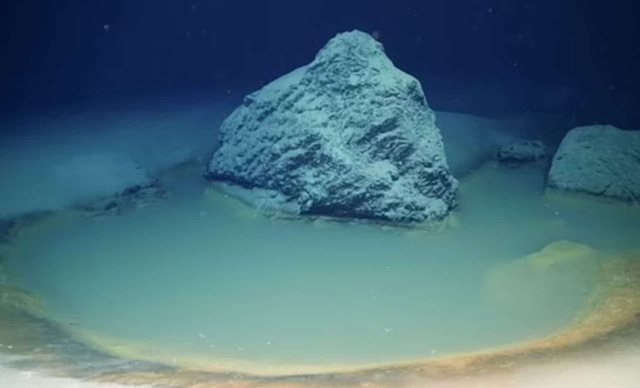
Researchers make shocking discovery in the depths of the Red Sea


In a groundbreaking exploration of the Gulf of Aqaba, scientists have discovered extreme brine pools nearly 4,000 meters below the surface – a discovery with implications that extend far beyond geology.
Located in a region traditionally associated with the biblical account of the parting of the Red Sea , these newly mapped underwater lakes contain salty, oxygen-deprived water that not only preserves ancient environmental records but also supports rare microbial life.
The discovery, recently published in Nature , suggests that these pools could provide vital insights into conditions on early Earth, past seismic and climate events, and even the potential for life on other planets.
The pools were discovered during a six-week expedition using a remotely operated underwater vehicle (ROV). In the final minutes of a ten-hour dive, the ROV discovered a barren, mud-covered seabed marking the edges of the pools – an environment unlike any previously recorded in the region.
Brine pools are extremely rare and form when very salty water rises from the seabed, creating a distinct body of water that resists mixing with the surrounding ocean.
Because of their density and lack of oxygen, these pools prevent the biological activity that would normally disturb sediment layers. As a result, they become natural geological archives, preserving millennia of sediments undisturbed.
“Normally, these animals bioturbate or raise the seabed, disturbing the sediments that accumulate there,” explained Professor Sam Purkis, the principal investigator on the mission. “Not so with brine pools. Here, any sedimentary layer that is deposited on the brine pool bed remains remarkably intact.”
This unique feature allows scientists to extract sediment cores that carry a continuous environmental record – from floods and tsunamis to changes in regional climate – spanning more than 1,000 years.
According to the researchers, data from the pools show that major floods recur every 25 years, while tsunamis occur approximately once a century. Such high-resolution data is invaluable not only for understanding past disasters, but also for predicting future environmental hazards.
The importance of these brine pools extends beyond geology. Their anoxic and hypersaline conditions closely resemble those of the early Earth, making them a natural laboratory for studying the origins of life. “Our current understanding is that life originated on Earth in the deep sea, almost certainly under anoxic conditions – without oxygen,” Purkis said.
Despite the harsh environment, the researchers found a thriving community of extremophile microbes, including sulfate-reducing bacteria and prokaryotes capable of surviving extreme salinity and pressure.
These organisms play an important role in changing the chemical composition of the pools, particularly in reducing sulfate levels to their lowest ratios ever recorded in the Red Sea.
"Studying this community thus allows a glimpse into the kind of conditions where life first appeared on our planet and could guide the search for life on 'other water worlds' in our solar system and beyond," Purkis added.
This has sparked excitement among astrobiologists, as similar extreme environments may exist in the subsurface oceans of icy moons like Europa or Enceladus, or in ancient saltwater deposits on Mars. These brine pools provide a model environment for understanding how life might survive – or even emerge – on such alien worlds.
What makes this discovery particularly compelling is its location. The Gulf of Aqaba, a narrow extension of the Red Sea bordered by Egypt, Israel, Jordan and Saudi Arabia, is one of the regions thought to match the biblical description of where Moses parted the Red Sea.
While the researchers do not claim a direct connection between their findings and the Book of Exodus, the discovery adds a new layer of intrigue to a site already rich in religious, geological and historical significance.
The Gulf's unusual combination of extreme depths, volcanic features, and temperature anomalies has long puzzled geologists and theologians. The presence of these brine pools adds to the mystery, providing tangible evidence of a volatile and complex marine system that may have witnessed, preserved, or even contributed to dramatic natural events in antiquity.
ideas
top
Alfa recipes
TRENDING 
services
- POLICE129
- STREET POLICE126
- AMBULANCE112
- FIREFIGHTER128




























